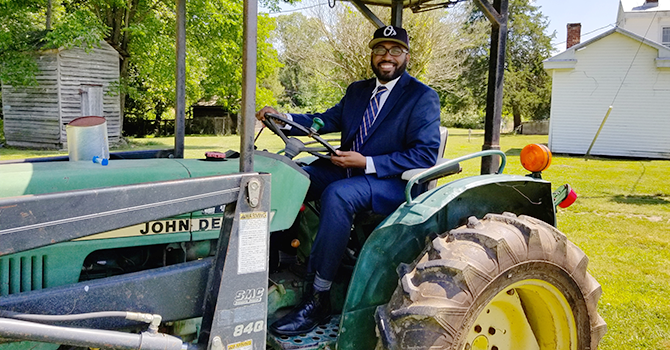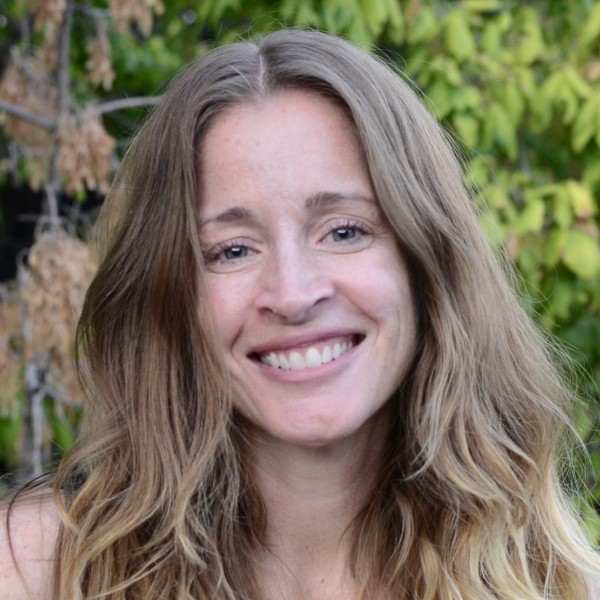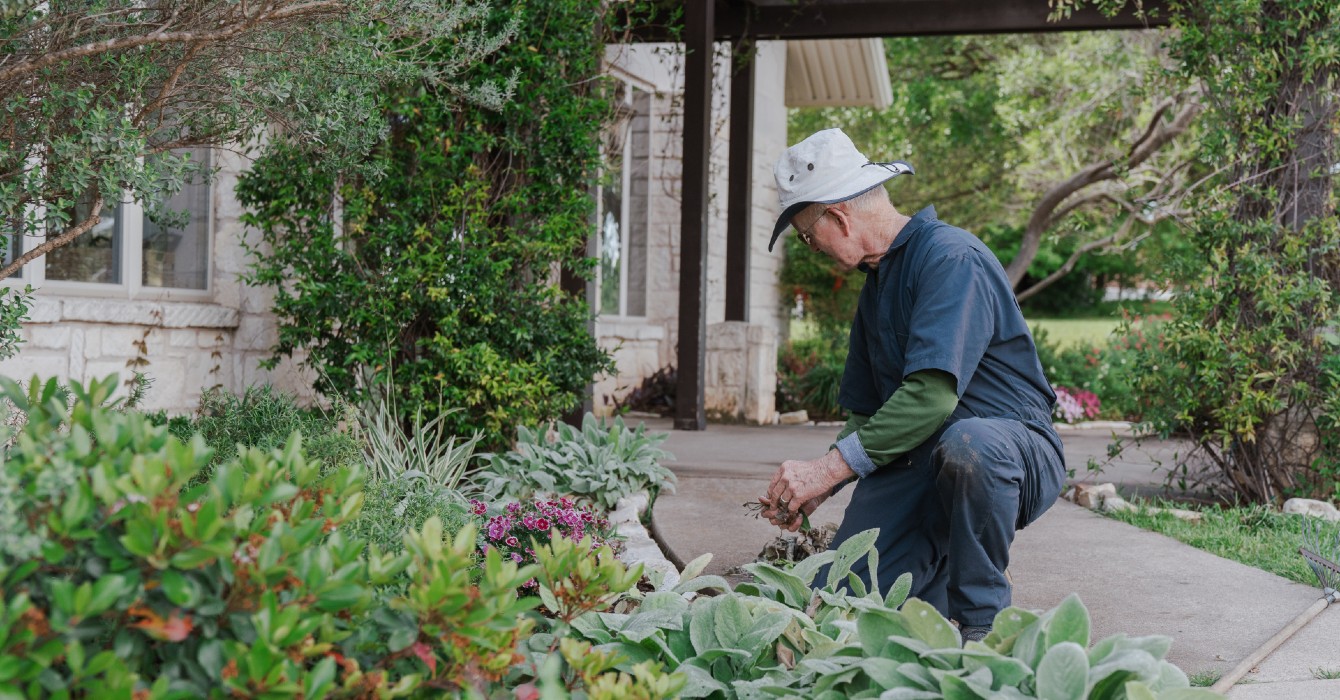The city of Baltimore was in crisis.
It had been nearly two weeks since 25-year-old Freddie Gray lapsed into a coma after suffering severe spinal injuries during an arrest by Baltimore police, and six days since his death. While protests had initially been peaceful, a torrent of frustration and anger over decades of systemic racism -- and grief over the death of another young black man at the hands of law enforcement -- now engulfed the city. Two days later, within hours of Gray’s funeral on April 27, 2015, West Baltimore and downtown erupted into violence.
Clashes between police and residents shut down roads and schools, and some shops were looted and burned. The mayor instituted a weeklong citywide curfew, and Maryland’s governor declared a state of emergency, calling in the National Guard. With the city in chaos, groceries and corner stores were shuttered. And with key parts of the Metro system inoperable, markets on the outskirts of town were impossible to reach for people of limited means.
So Baltimore’s hungry residents called Pleasant Hope Baptist Church, roughly 5 miles north of some of the worst violence. Five years earlier, concerned about the diet-related illnesses plaguing his largely African American congregation, the Rev. Dr. Heber M. Brown III had led an effort to establish a garden on church property, with beds of broccoli, kale and tomatoes.
Now, in the midst of a communitywide crisis, Brown reached out farther, to black farmers in surrounding rural areas. He urged them to truck their goods to the church, where members would box up the bounty, delivering fruits and vegetables to the city’s hardest-hit neighborhoods.
“Because food was our calling card, the phone started ringing,” Brown said. “After 2 ½ weeks, I realized we had the beginnings of a system, and it would be advantageous to keep that going.”
What is your organization’s calling card? Would people reach out to you in a crisis?
The system that grew out of the crisis is the nonprofit Black Church Food Security Network, which helps congregations establish gardens and farmers markets on church-owned land. It also connects them with black-owned farms and urban growers throughout the mid-Atlantic, creating what Brown calls “pipelines for fresh produce from ‘soil to sanctuary.’”
Along with funding to establish their gardens, participating congregations get lessons on everything from environmental stewardship to food justice, while farmers receive economic support and access to church-based farmers markets that previously didn’t exist. The network currently includes about 25 black congregations and a dozen growers in Maryland, North Carolina, Virginia and Washington, D.C.

Brown is quick to point out that the network is not a charity, like a soup kitchen or a food bank, designed to provide short-term sustenance. Rather, the network promotes long-term economic empowerment among black farmers and congregations, while addressing underlying issues of health, food accessibility and self-determination.
“We can actually become a pipeline that helps [farmers] magnify their presence in the region, and even create products of our own,” he said. “I’m just connecting dots, showing people what’s possible when we work together.”
From ‘food apartheid’ to social justice
The network is part of a much broader food sovereignty movement, which seeks to return control of food production and distribution -- and the economic benefits that come along with that -- to often-disenfranchised communities, whether rural farmers in Mozambique, fishermen in India or low-income families on Chicago’s South Side.
In the U.S., gardening-based initiatives like the Detroit Black Community Food Security Network and the Urban Growers Collective in Chicago have transformed vacant lots in urban “food deserts” into oases full of fresh fruit and vegetables, while also sponsoring beekeeping operations, agricultural internships, job training programs, gardening camps for children, and workshops on climate change and food justice.
Although precise definitions vary, a “food desert” generally is a low-income neighborhood where residents don’t have access to affordable, healthy food -- often because they lack the money to pay for food at nearby markets or because there are no markets nearby and the cost of transportation is a barrier.
In June 2015, not long after what’s become known as the Baltimore Uprising, a report showed that 25% of Baltimore’s residents lived in food deserts, with the city’s African American population the most likely of any racial or ethnic group to be affected. Not coincidentally, African Americans also suffered from considerably higher rates of diabetes, obesity and high blood pressure, according to the report.
For his part, Brown prefers the term “food apartheid,” which frames the problem less as a natural phenomenon, like a desert, than one with systemic discriminatory social and economic roots.
Brown reframed the problem of “food deserts,” referring to it instead as “food apartheid.” What are the social justice issues you could identify and reframe?
Black churches, he said, are uniquely positioned to use their land to address the injustices associated with food apartheid. While decades of discriminatory social and lending practices have forced black farmers off their land, the black church has endured, serving as the bedrock for many black communities and the center of grassroots social justice efforts.
“Through all this country has been through -- systemic discrimination, violence, racism, economic downturns, world wars, the Depression -- the black church has weathered all those storms,” Brown said. “The most sustainable institution in black America is the black church.”
‘A wonderful arena for spiritual formation’
Brown, a Baltimore native and third-generation Baptist preacher, was primarily concerned with building up the health of his community when he persuaded his congregation to turn the church’s front yard into a garden in 2010. Enthusiastic volunteers transformed 1,500 square feet of manicured lawn into a volunteer-run agricultural effort that generates 1,200 pounds of fresh food each year.
The Black Church Food Security Network often uses the tiny plot as an example of how other churches can make a big impact with very little upfront investment. Money that had previously been spent on landscaping and lawn mowing was set aside for soil, seeds and the construction of raised beds, Brown said.

What modest investments could you make that would spread throughout your congregation or community?
Many of the church’s senior citizens had been part of the Great Migration in the mid-20th century, fleeing the rural Deep South for economic opportunities in the more industrialized North, and they were excited to once again use the agrarian skills they’d brought with them. The church’s younger members, fans of the burgeoning “buy local” movement, were energized by the social justice inherent in controlling their own source of healthy food.
At first, Pleasant Hope, which draws about 125 worshippers on Sundays, gave away its food, but that wasn’t sustainable long term, Brown said. Now, the church sells the produce at its monthly Soil to Sanctuary farmers market -- along with other items, such as watermelons, strawberries and eggs trucked in from partner farms -- at prices that cover the cost of the operation but still come in lower than traditional organic markets.
Since establishing its garden, the congregation’s “health IQ has gone through the roof,” Brown said, its focus on social justice now permeating every ministry at the church. The garden also has provided a catalyst for conversations about civil rights pioneers like Fannie Lou Hamer, Vernon Johns and Albert Cleage Jr., who championed the link between community-based farming initiatives and black self-determination, Brown said.
And in 2014, Pleasant Hope Baptist established Orita’s Cross Freedom School on its grounds, welcoming children from throughout Baltimore on days when the city’s public schools are closed. There, amid lessons about their ancestors’ contributions to culture, art and political thought, youngsters dig in the garden, learn about the environment, experiment with healthy recipes and learn how to be agents of change in their communities.
As you deal with crises in your context, what resilient, sustainable systems could you put in place to address underlying problems?
Brown said he spends a lot of time urging his congregation to love themselves in an effort to overcome media-driven tropes that can criminalize or demonize African Americans. The garden helps support that message, he said, providing a powerful example of self-reliance.
“Self-love in the African American context is important. The role that land plays in building up that pride on the inside -- now we have something in our hands that God can bless for our own transformation,” he said. “When you have a garden on church grounds, it creates a wonderful arena for spiritual formation that you didn’t have before.”
Leah Penniman, a 2019 James Beard Leadership Award recipient for her food sovereignty work at Soul Fire Farm west of Albany, New York, called the Black Church Food Security Network “brilliant and elegant” for the way in which it addresses needs within a community by building on an existing, respected institution, like the church.
“When community bands together to create a solution to a systemic problem, that creates unification in the community, it creates pride and self-determination , it creates hope, it provides an example for our young people that they can see an issue in their community, take action and really have some positive change,” Penniman said. “So there are obviously lots of impacts.”

‘The genius that’s in your house’
In addition to providing congregations about $1,000 seed money to purchase soil, gardening tools and lumber to build raised beds, the Black Church Food Security Network helps them recruit volunteers to prepare and care for their land.
At network churches, the program has provided an “on-ramp” for new members who find time in the garden as meaningful as any traditional worship experience, Brown said. It has helped uncover hidden talents among worshippers -- expertise in canning, herbal remedies, and even number crunching, which is essential to tracking sales data and helping ensure a profit margin that is then plowed back into the garden.
“The people you need are the people God has already given you. They’re already there,” he said. “Honor the genius that’s in your house.”
Are you honoring “the genius that’s in your house”?
He also encourages churches to reimagine their assets. Just as a church lawn can spawn a garden, a church parking lot is a perfect place to host a farmers market, and a church kitchen is ideal for cooking demonstrations. And the places where food and faith intersect can provide fertile ground for meaningful conversations.
At a Bible study session following Pleasant Hope Baptist’s May farmers market, Shirley Taylor, 66, and other seniors in the congregation reminisced about the natural remedies their parents and grandparents relied on to treat common ailments, like drinking “pot liquor” -- the juice left behind after greens have been stewed -- as a laxative, or rubbing aloe vera gel on arthritic joints.
Taylor, who shared that she eats plenty of fresh greens and drinks an ounce of apple cider vinegar each day to address her high blood pressure, said the conversation sparked plans to preserve those folk remedies for future generations in an archive at the church.
She said it’s not uncommon these days for market visitors and even youngsters in the church to opine about the benefits of organically grown collard greens or free-range eggs while swearing off processed food and pesticide-treated produce.
“What’s so amazing to me is it’s the younger generation that’s so interested and excited to work in the garden,” Taylor said. “Plus, we’re not only providing a service; we’re bringing people together.”
While the Black Church Food Security Network has grown steadily since 2015, its headquarters remain -- for now -- at Pleasant Hope Baptist Church.
It has one employee, church member Sha’Von Terrell, 25, who met Brown while gathering oral histories from residents who participated in the uprising. This year, she’ll serve as a Food Sovereignty Fellow, helping coordinate with farmers and other partners to grow the food system.
The fellowship is a collaboration between Pleasant Hope Baptist Church and the Black Church Food Security Network.
“Owning your food system is community wealth-building,” said Terrell, who just earned her master’s degree in city and regional planning from nearby Morgan State University.

The network’s funding derives largely from individual donations and grants from the Maryland-based Town Creek Foundation and the New Visions Foundation in Illinois, both of which support ecological sustainability efforts. It gets an intern each summer through the Johns Hopkins Community Impact Internships Program.
The network’s profile is expected to rise even more when Brown shares a stage with former Vice President Al Gore, discussing ministry in a time of climate change at the On Food and Faith conference at Methodist Theological School in Delaware, Ohio.
Most of the network’s growth over the last four years has been through word-of-mouth, Brown said. For example, when a member of New Hope Baptist Church in Chesapeake, Virginia, some 250 miles south of Brown’s congregation, proposed starting a church garden, the Rev. Sammie Logan III said he knew just the person to turn to for help. Logan had attended Virginia Union University and Wesley Theological Seminary with Brown.
With guidance from the network, volunteers are building 10 raised beds at the Hope Center, a conference facility owned by New Hope Baptist. The 100-year-old church gathers five generations under its roof, said Logan, and the garden will provide the perfect setting for seniors and small children to work alongside each other.
“The garden is an opportunity to increase opportunities for fellowship and real-life interactions so their relationships in church become stronger,” Logan said. “It’s not divorced from the worship experience. It’s God at the end of the day who blesses the garden to be fruitful.”
‘An ecosystem for spiritual joy and social justice’
A key piece of the network’s activism is focused on educating consumers, not only about the health and environmental impacts of eating locally sourced food, but also about the economic realities associated with producing and delivering that food.
For instance, Pleasant Hope Baptist received a shipment of watermelons last year that were amazing, but the second batch from the same farm wasn’t nearly as good, because the melons had sat in a hot trailer overnight, Brown said.
Rather than write that farm off as a poor supplier, Brown said he used the opportunity to educate his congregation about the challenges family farmers face in getting their products to the market. That’s all the more reason to support those farmers, he said.
“We’re partners in this, not just consumers,” he said. “Our learning has been transformed because we’re asking different questions, because we’re closer to the production of our food. It’s an ecosystem for spiritual joy and social justice.”

To that end, Baltimore-based network members took a bus trip last year down to Browntown Farms, a fifth-generation black-owned farm in Warfield, Virginia.
Visitors toured the fields, salivated over fresh strawberries and met owners Herbert Brown Sr. and his son, Herb Brown Jr. (not related to Pleasant Hope’s Brown). The farm traces its roots back to 1908, when Herb Brown Jr.’s great-great-grandfather bought the property and planted tobacco. But the land had sat idle from the late 1980s to about 2006, when Herbert Brown Sr. decided to revive the family’s farming legacy, said his son.
Though they could grow beautiful fruits and vegetables, finding an affordable way to market them was more difficult in their rural community, said the younger Brown. The busload of hungry consumers from Baltimore was a blessing, he said. Pleasant Hope volunteers now drive the 450-mile round trip from Baltimore to pick up pallets of Browntown’s strawberries and jars of homemade jam and salsa to sell at the church’s farmers market.
How could you create an “ecosystem for spiritual joy and social justice” in your context?
“They’ve opened up doors and allowed us to hit a market we would not be in otherwise,” Brown Jr. said. “It’s also a point of pride for us, that we’re sharing our products with people who enjoy and appreciate it and need healthy food.”
In an effort to further link black churches with black growers, the Black Church Food Security Network hopes to publish soon a directory and map of black-owned farms, starting with the mid-Atlantic and expanding outward, the Rev. Brown said. In the long run, the network wants to help black farmers and congregations develop their own product lines -- fruit preserves, gourmet spreads, compost for soil conditioning -- all of which can grow into profit-making enterprises.
“If we can grow food together and feed ourselves, what else can we do together?” said Brown, who quickly answered his own question, suggesting sewing co-ops, child care initiatives or a “Jubilee fund” that helps members pay off their debt. “The sweet potatoes, watermelon and spring onions are just a way to bring us together. Who knows what this will spin off?”
Questions to consider
Questions to consider
- When people couldn’t get food during the Baltimore Uprising, they reached out to Pleasant Hope Baptist Church because food was the church’s “calling card.” What is your organization’s calling card? Would people reach out to you in a crisis?
- The Black Church Food Security Network grew out of a crisis response but then expanded to become a systemic approach to social justice. As you deal with crises in your context, what resilient, sustainable systems could you put in place to address underlying problems?
- Brown reframed the problem of “food deserts,” referring to it instead as “food apartheid.” What are the social justice issues you could identify and reframe?
- Pleasant Hope’s garden has had a big impact with very little upfront investment. What modest investments could you make that would spread throughout your congregation or community?
- Are you honoring “the genius that’s in your house”?
- How could you create an “ecosystem for spiritual joy and social justice” in your context?












